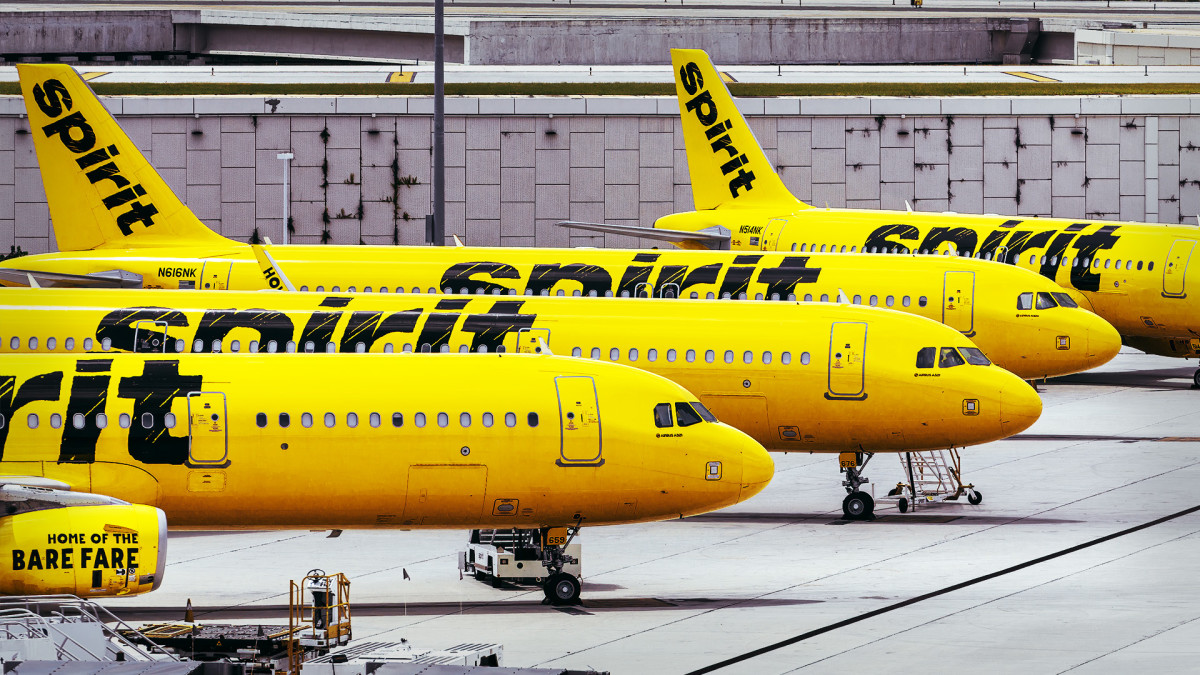
It has been a big week of low-cost airlines announcing policy changes that bring them ever closer to the mainstream ones.
On July 25 Southwest Airlines (LUV) said it was getting rid of the open seating policy with which it has been associated for decades and would let travelers pay extra for confirmed seats.
Southwest CEO Bob Jordan called the change one of several "urgent and deliberate steps" the airline needed to put in place to improve its performance. The carrier is seeing a backlash to the new policy on social media.
Related: Southwest Airlines finally makes the seating change many feared
Five days later fellow low-cost competitor Spirit Airlines (SAVE) said it was ending its former bare-bones model, by which customers pay base fares and then add on extra-fee items like checked bags and seat selection.
Instead, Spirit has created fare classes with different levels of perks.
Spirit's new fare structure looks like this
The four classes begin with a basic "Go" fare, in which no carry-ons are allowed at all. The least restrictive "Go Big" fare includes a carry-on item and checked bag, an assigned seat with extra legroom at the front of the plane, priority check-in and boarding, as well as extras like snacks and free in-flight Wi-Fi.
More on travel:
- Another National Park just made it more difficult for you to visit
- Delta Air Lines makes a baggage change that travelers will like
- United Airlines passenger incident triggers quick response
There are two classes in between. "Go Savvy" gives passengers the choice of either a carry-on or a checked bag. "Go Comfy" gives passengers both a carry-on and checked bag as well as a wider and preassigned seat.
"We're unveiling a new era in Spirit's history and taking low-fare travel to new heights with enhanced options that are unlike anything we've offered before," Spirit Chief Executive Ted Christie said in a statement.
"We listened to our guests and are excited to deliver what they want: choices for an elevated experience that are affordable and provide unparalleled value."
While Christie framed these changes as giving travelers more choices, industry observers and passengers note that such fare bundles are often an effort to quietly raise fees and eliminate certain payment loopholes.
Related: Get the best cruise tips, deals, and news on the ships from our expert cruiser
Spirit Air seeks 'return to profitability': analyst
In May peer low-cost carrier Frontier Airlines (FRON) shifted toward a similar bundle structure.
The biggest passenger complaint was that when anything but the lowest bundle — which worked only for someone traveling alone and short distances without a single bag — is chosen, there was little difference in cost between Frontier and mainstream carriers.
Spirit has posted a number of unprofitable quarters, including a $142.6 million loss for Q1 2024.
A rescue plan to merge with JetBlue Airways (JBLU) acquisition was blocked by a federal judge in January.
"Spirit has been on a journey to transform the passenger experience as it seeks a return to profitability," writes The Points Guy’s Zach Griff.
He adds: "Spirit and its ultra-low-cost peers must do what they can to survive in an environment in which the major network carriers are competing more closely with their basic economy fares and more extensive networks."







